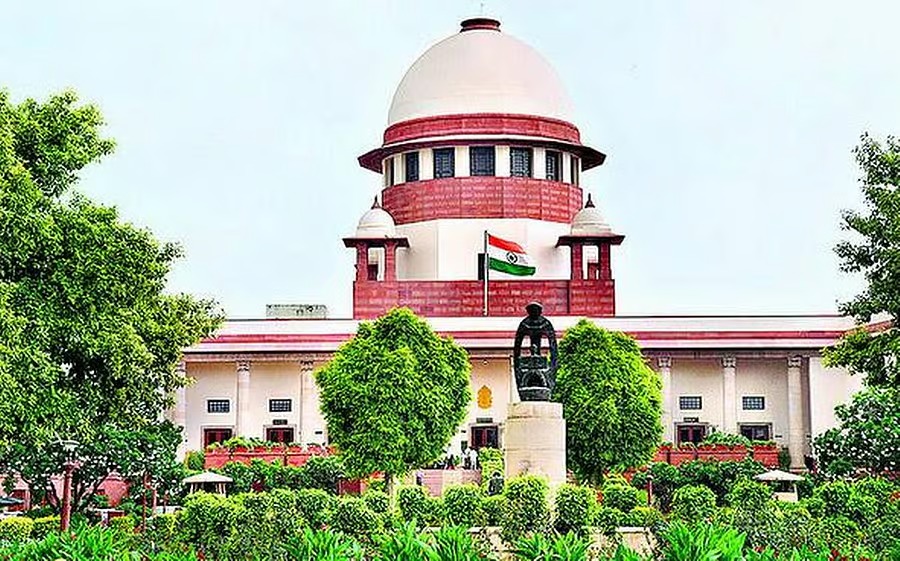1. This is an appeal by the Plaintiff in a suit for recovery of money due on adjustment of accounts. The Plaintiff who is a pleader acted as the legal adviser of the father of the Defendant as also of his paternal grand-mother. It was agreed between the parties that the Plaintiff would receive his legal fees, if so desired, or that the Plaintiff would get Rs. 32. per diem in contested suits, Rs. 16 per diem in ex parte suits, Rs. 6 for filing petitions and for appearing, Rs. 4 for accepting vakalatnamah, and Rs. 16 to Rs. 32 for drafting plaint and written statement as the case might be. The Plaintiff alleges that an account was taken of the sums due to him for his services, and that after deduction of the amounts paid and of the amount relinquished, on amicable settlement it was found on the 11th April 1914 that a sum of Rs. 5,000 was due to him. On the 10th April 1917, the Plaintiff instituted the present suit to recover the sum thus found due to him on adjustment of accounts. The Defendant is a minor under the Court of Wards and the.Manager of the Court of Wards on his behalf took the defence that the suit was barred under sec. "28 of the Legal Practitioners Act. This defence has prevailed in both the Courts below and the suit has accordingly been dismissed. Sec. 28 of the Legal Practitioners Act is in these terms:-" No agreement entered into by any pleader with any person retaining or employing him, respecting the amount and manner of payment for the whole or any part of any past or future services, fees, charges, or disbursements in respect of business done or to be done by such pleader shall be valid unless it is made in writing signed by such person, and is, within.15 days from the day on which it is executed, filed in the District Court or in some Court in which some portion of the business in respect of which it has been executed has been or is to be done."
2. The true scope of this section formed the subject of discussion in the cases of Kamini Debi v. Khetter Mohun 15 C. L. J. 660: s. c. 17 C. W. N. 45(1911); 15C.L.J.690: S.C. C.W.N. 681 (1910). Ishan Chandra Kar v. Ram Charan Pal 20 C. L. J. 445 (1914). Mohendra Lal v. Akhil Chandra 20 C. L. J. 424 (1913) and Sib Kisor Ghose v. Manick Chandra Nath 21 C. L. J. 618 (1915). These decisions show that the Court is reluctant to restrict the provisions of sec. 28 by placing a narrow and restricted interpretation there It may be conceded that where there is no agreement between the pleader his client, the pleader is entitled to maintain an action for recovery of reasonable remuneration for services rendered. But where there is a contract between the parties such contract to be enforceable must fulfill the requirements of sec. 28, namely, that the contract must be in writing and the writing must be deposited in Court within the prescribed period. In the ease before us, the plaint shows that there was an agreement between the pleader and his client. That agreement was admittedly not deposited in Court and consequently was not enforceable under sec. 28. Subsequently an adjustment was made and a sum was found due to the Plaintiff. The question is whether a suit on the basis of this adjusted account is in essence a suit to enforce an agreement which does not comply with the requirements of sec. 28. In our opinion the answer must be in the affirmative. A similar point arose before Mr. Justice Muttusami Ayyar in Krishnasami v. Kesava I. L.R. 14 Mad. 68 (1890). There the client delivered to his pleader a promissory note for the amount of his dues. The note was not filed in Court. In a suit to enforce the promissory note, the Court held that the note was invalid, as executed in respect of business done by the Plaintiff as pleader of the Defendant within the meaning of sec. 28. The point arose again in Anantayya v. Padmayya I. L. R. 16 Mad. 278 (1892) where Mr. Justice Muttusami Ayyar followed his previous decision in Krishnasami v. Kesava I. L.R. 14 Mad. 68 (1890). In that case the suit was brought on a note which had been given in substitution for another note for which the consideration was fee payable by the client, to the pleader. It was held that the note was invalid and could not be enforced under sec. 28. The matter was fully discussed by Mr. Justice Subramaniya Ayyar and Mr. Justice Bhashyam Ayyangar in the case of Subha Pillai v. Ramasami Ayyar I. L. R. 27 Mad 512 (1903) In that case the pleader had incurred expenses in connection with law suits conducted by him for his client and a promissory note had been given by the client to recover the sum due. It was ruled that the promissory note was, within the meaning of sec. 28, an agreement respecting the amount of payment for charges incurred or disbursements made by the pleader in respect of the suit in which he had been retained, and was invalid as it had not been filed in Court as required by the section. These decisions were revised by Mr. Justice Kumarsami Sastri in the case of Nateya Moppa v. Ram Chandra Ayyar (8). It was held that a promissory note given in such circumstances must be treated as embodying an agreement by a client with his pleader to pay his fees and was consequent by not valid unless ii fulfilled the requirements of sec. 28. We are of opinion that in the present ease the suit is not maintainable on the basis of the adjusted accounts.
3. It has been finally urged that the case may be brought within the scope of sec. 25 of the Indian Contract Act. The agreement may be treated as a promise to compensate, wholly or in part, a person who has already voluntarily done something for the promissory. The answer is that the services rendered by the pleader were not voluntary. They were rendered on request, in pursuance of an agreement to pay a certain remuneration. We have examined the plaint with a view to consider whether the suit can be treated not as a suit on the adjusted accounts but as a suit to recover a reasonable remuneration for services rendered. But the allegations in the plaint leave no room for doubt that the suit cannot be so treated. No details are furnished as to the services rendered : and even if the details were available, a question of limitation would arise. The adjustment was made nearly three years before the suit and long after the services had been rendered. A claim founded on the original cause of action would be plainly haired by limitation. The result is that the decree made by the Court below is affirmed and this appeal dismissed with costs.

